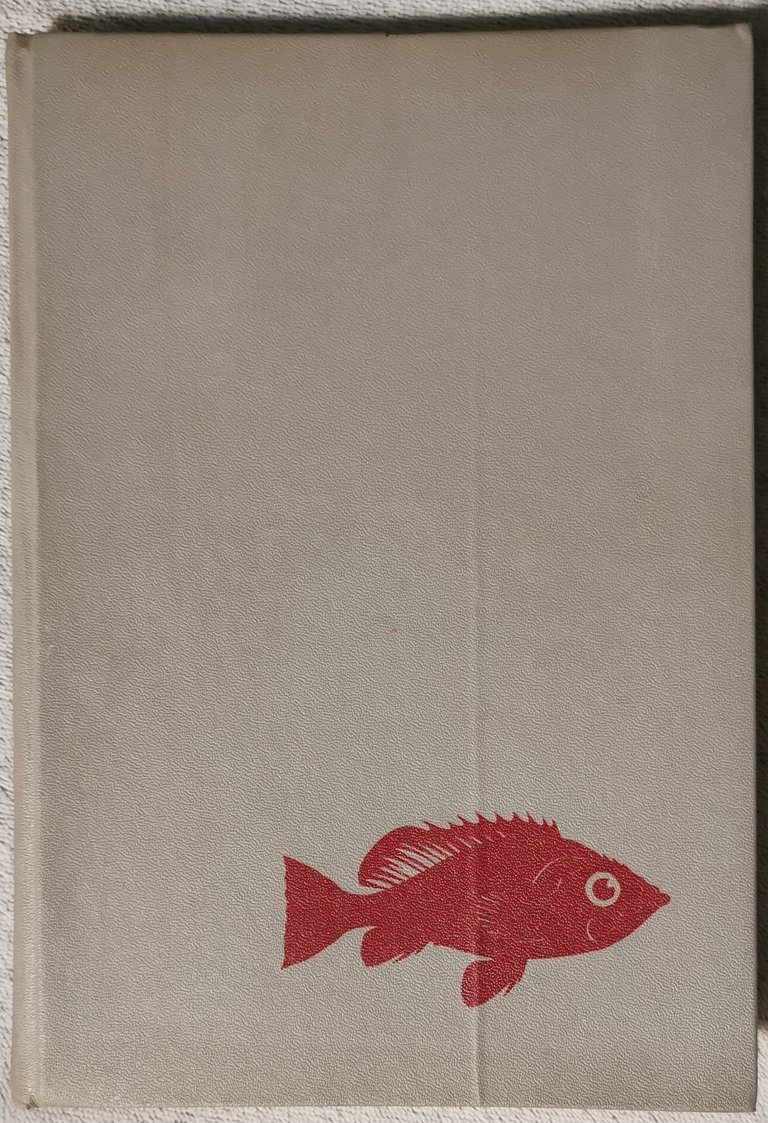
| Dziś chciałbym Wam przedstawić książkę, która towarzyszy mi od dzieciństwa. Wtedy dostarczała wiedzy i pobudzała wyobraźnię, dziś potrafi pomóc na ataki chandry i nostalgii przypominając tamte dobre czasy. Zapewne zdziwi was tytuł i zawartość, albowiem chodzi o... „Żywe skarby mórz” Ludwika Żmudzińskiego, wydane w roku 1980 przez Wydawnictwa Szkolne i Pedagogiczne, ilustrowane przez Andrzeja Nodzykowskiego (kolor) oraz tego samego rysownika do spółki ze Stefanem Jackowskim (rysunki czarno-białe). | Today I would like to introduce you to a book that has been with me since my childhood. At that time it was a source of knowledge and a stimulus to the imagination; today it can help fight bouts of despondency and nostalgia by reminding us of the good times. You will probably be surprised by the title and content, because it is... "Living Treasures of the Seas by Ludwik Żmudziński, published in 1980 by Wydawnictwa Szkolne i Pedagogiczne, illustrated by Andrzej Nodzykowski (colour) and the same illustrator in collaboration with Stefan Jackowski (black and white drawings). |
| Wiele złego można mówić (a czasem wręcz trzeba) o PRL, ale jednocześnie warto docenić, że wydawnictwa naukowe na ogół trzymały dobry poziom i wydawały całkiem ciekawe książki, także takie skierowane do szerszej publiczności, która w szarej codzienności jednak chciała się czegoś dowiedzieć o kolorowym świecie, dostęp do którego miała mocno ograniczony. Podobnie jest i w przypadku książki, o której mowa dziś. | A lot of bad things can (and sometimes must) be said about communist Poland, but at the same time it is worth acknowledging that scientific publishing houses generally maintained a good standard and were publishing quite interesting books, including those aimed at a wider audience who, in their grey everyday lives, still wanted to learn something about the colourful world to which they had very limited access. The same is true of the book we are discussing today. |
| Składa się ona z dwóch wyraźnie oddzielnych części. Pierwsza ma charakter zdecydowanie bardziej naukowy i daje nam szansę poznania teoretycznych zagadnień związanych z eksploatacją mórz przez człowieka. Dominują informacje o rybach – poznajemy ich taksonomię (uwzględniającą, co prawda, tylko najbardziej eksploatowane rodzaje – ale to i tak dużo), budowę anatomiczną, sposób życia, a także metody połowów | It consists of two very different parts.The first is definitely more scientific and gives us the chance to learn about the theoretical issues related to human exploitation of the seas. It is dominated by information about fish - we learn about their taxonomy (including, admittedly, only the most exploited species - but that is still a lot), anatomical structure, way of life, as well as fishing methods |

| i statystyki wydobycia (dziś już oczywiście nieaktualne). | and exploitation statistics (now obviously outdated). |
 )
)
| Cennym dodatkiem są też ryciny przedstawiające poszczególne etapy rozwoju różnych rodzajów ryb. | Figures showing the developmental stages of different fish species are also a valuable addition. |

| Podobnie przedstawione zostały morskie ssaki – walenie i płetwonogi, a także mięczaki i skorupiaki, znalazło się też trochę miejsca dla podwodnej roślinności. Na zakończenie części naukowej jest też rozdział poświęcony podziałowi mórz i oceanów pod względem temperatur i bioróżnorodności. Warto też docenić dostrzeżenie już wtedy kiełkujących dopiero problemów ekologicznych – zanieczyszczenia mórz i przeeksploatowania różnych gatunków. | Similarly, marine mammals - cetaceans and pinnipeds - are presented, as well as molluscs and crustaceans, with some space devoted to underwater plants. The scientific section concludes with a chapter on the classification of seas and oceans in terms of temperature and biodiversity. It is also worth noting that the ecological problems that were just beginning to emerge at the time - pollution of the seas and overexploitation of various species - were recognised. |
| Druga część to opisy poszczególnych gatunków i rodzajów, w standardowym układzie – lewa strona to opis gatunku (czasem dwóch na stronę), jego zwyczajów i informacji o wydobyciu, plus mapka pokazująca zasięg występowania, | The second part consists of descriptions of individual species and genera in a standard layout - the left-hand page contains a description of the species (sometimes two per page), its habits and information on its exploitation, plus a map showing its range, |

| natomiast prawa strona to po prostu kolorowa ilustracja gatunku/gatunków. | while the right-hand page is simply a colour illustration of the species. |
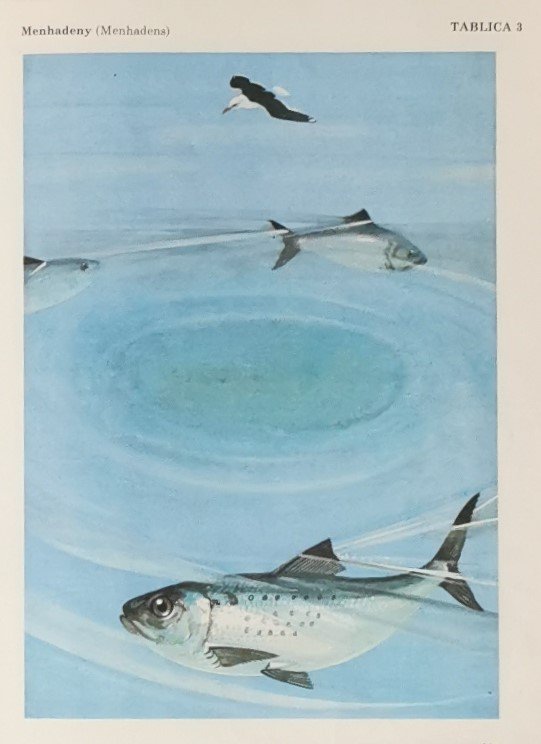
| Łącznie 64 tablice, gatunków, zdaje się – 91. A ilustracje są – przynajmniej moim zdaniem – znakomite, szczególnie te na ciemnym tle. Zapadają w pamięć, pobudzają wyobraźnię – na długo pozostają w pamięci (na przykład dorsz, | A total of 64 illustrations, while the number of species, it seems, is 91. And the illustrations are - at least in my opinion - excellent, especially those with a dark background.They are memorable, stimulate the imagination - they stay in the memory for a long time (for example, cod, |

| graniki, | groupers, |
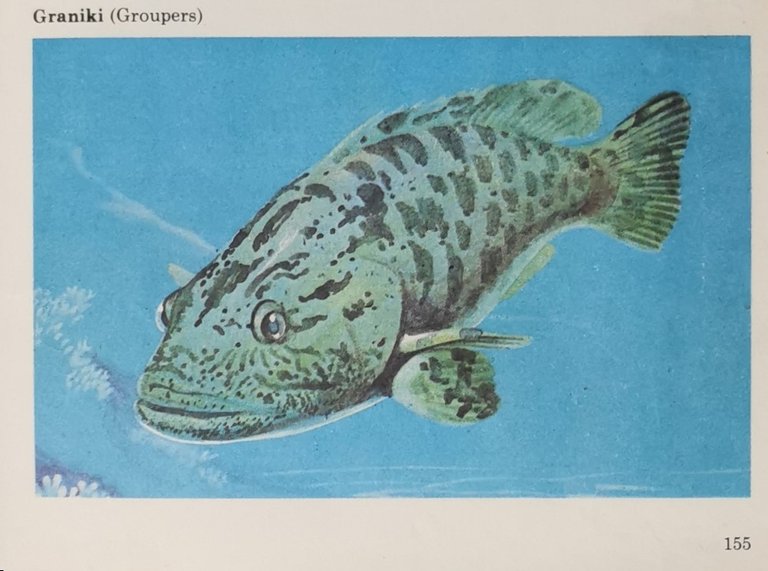
| halibut biały | halibut |

| czy langusta). | or Caribbean spiny lobster). |
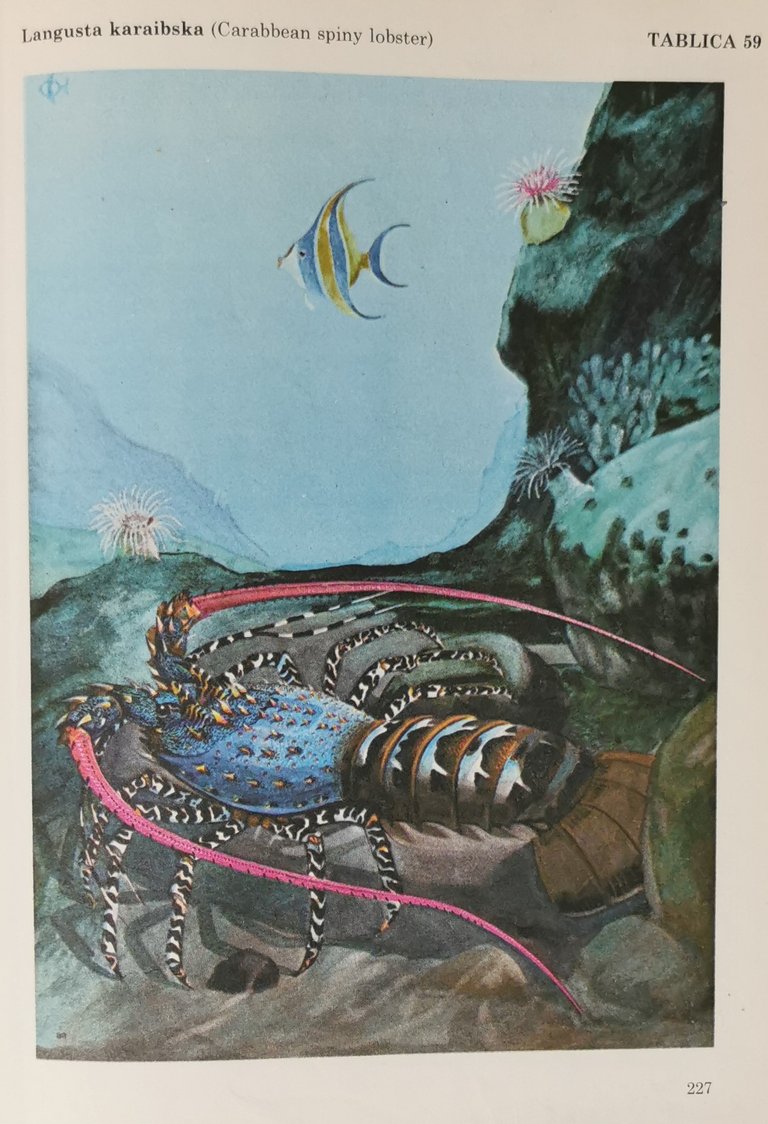
| Dla dziecka super sprawa. Oczywiście, czasy się trochę zmieniły, dziś może nie byłoby problemem zamieszczenie po prostu zdjęć, ale... jakoś tak te grafiki do mnie przemawiają. | Great for a child. Of course, times have changed a bit, today it might be no problem to simply use photos, but .... somehow these graphics appeal to me. |
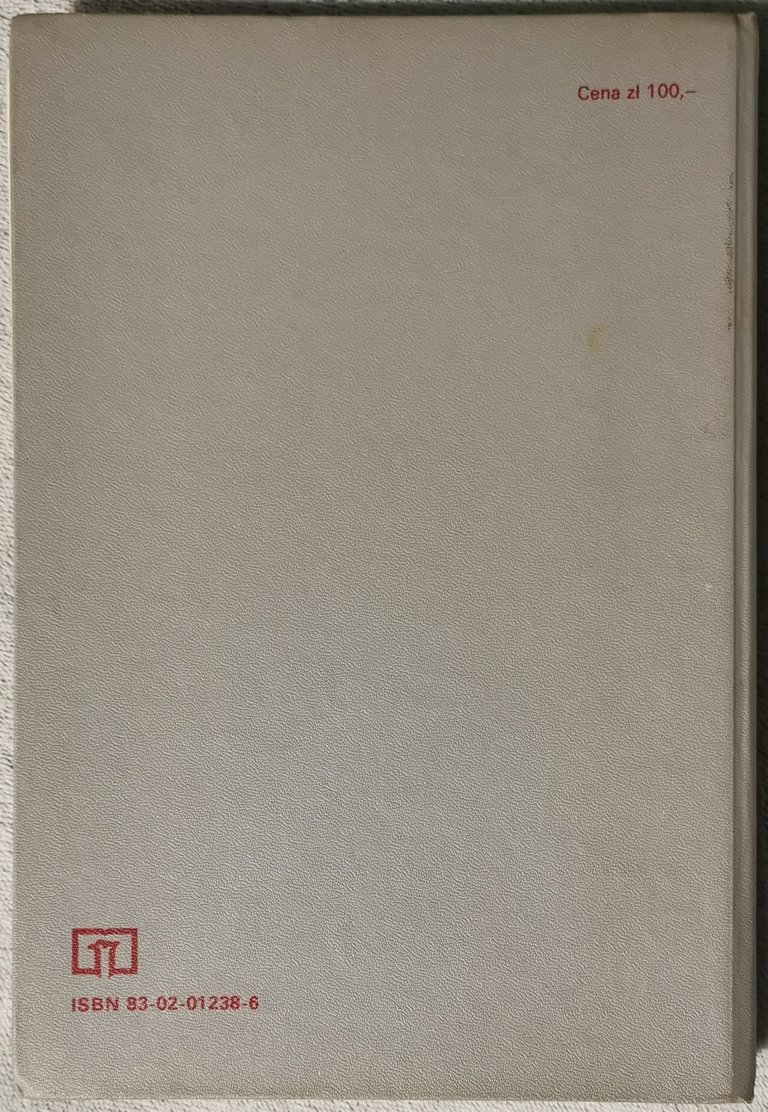 )
)
| Podsumowanie: Książka średniej grubości (252 strony). Da się ją czytać ciurkiem, ale równie dobrze można ją sobie dawkować małymi porcjami i delektować się wrażeniami artystycznymi. Obecnie przeznaczona może być głównie dla młodych osób, dopiero zaczynających swoją przygodę z morską zoologią i biologią – ci bardziej zaawansowani wszelkiego rodzaju informacje o rybach znajdą sobie na Fishbase – i to także z całą masą zdjęć. Co prawda, Fishbase wciąż nie doczekało się wersji polskojęzycznej, co może stanowić pewien problem. W każdym razie książka Ludwika Żmudzińskiego jest w pełni zadowalająca zarówno pod względem merytorycznym, jak też artystycznym. Dodatkowo wspiera naukę języków – przy każdym omawianym gatunku jest podana także nazwa angielska. Jako wadę, niewątpliwie, można wytknąć dezaktualizację statystyk, aczkolwiek po prawie 45 latach jest to rzecz zupełnie normalna. A innych zastrzeżeń nie mam. | Conclusion: A book of medium thickness (252 pages). You can read it all at once, but you can also divide it into small portions and enjoy the artistic experience. Nowadays, it may be aimed mainly at young people just starting their adventure with marine zoology and biology - those more advanced will find all sorts of information about fish on Fishbase", including lots of photos. To be fair, Fishbase does not yet have a Polish-language version, which could be a problem. In any case, Ludwik Żmudziński's book is fully satisfactory in terms of both content and art. It also helps with language learning - the English name is given for each species discussed. The only drawback is that the statistics are out of date, but this is normal after almost 45 years. I have no other complaints. |
| Ode mnie – końcowa ocena 9,5 na 10, także ze względu na sentyment. | From me - a final rating of 9.5 out of 10 also based on sentiment. |
| PS. Była jeszcze piękna obwoluta, w kolorach turkusowo-karmazynowym. Ale gdzieś mi się zadziała (chyba chciałem ją uchronić przed ostatecznym zniszczeniem), więc wyjątkowo się posiłkuję zdjęciem z netu: | PS. There was also a beautiful dust jacket, in turquoise and crimson. But it got lost somewhere (I think I wanted to save it from final destruction), so I'll make an exception and use a photo from the net: |
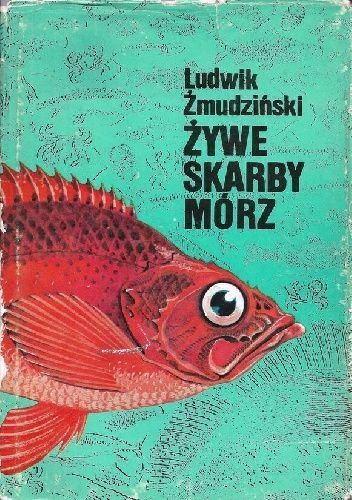
| Źródło | Source |
@tipu curate 4
Upvoted 👌 (Mana: 29/69) Liquid rewards.
Congratulations @avtandil! You have completed the following achievement on the Hive blockchain And have been rewarded with New badge(s)
Your next payout target is 2000 HP.
The unit is Hive Power equivalent because post and comment rewards can be split into HP and HBD
You can view your badges on your board and compare yourself to others in the Ranking
If you no longer want to receive notifications, reply to this comment with the word
STOPHello avtandil!
It's nice to let you know that your article will take 8th place.
Your post is among 15 Best articles voted 7 days ago by the @hive-lu | King Lucoin Curator by szejq
You receive 🎖 1.3 unique LUBEST tokens as a reward. You can support Lu world and your curator, then he and you will receive 10x more of the winning token. There is a buyout offer waiting for him on the stock exchange. All you need to do is reblog Daily Report 128 with your winnings.
Buy Lu on the Hive-Engine exchange | World of Lu created by szejq
STOPor to resume write a wordSTART